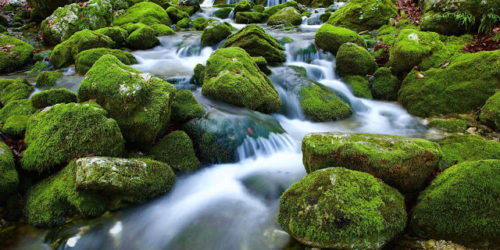Discovering History in Geography
 A crucial part of genealogical research is knowing the history of the location where your ancestors grew up. As a student majoring in family history at Brigham Young University, one of the many requirements that I have to accomplish in order to graduate is to take several history courses. The first few courses cover a brief overview of U.S. and World history, giving me a general idea of how things were at certain periods of history. This kind of perspective on history is really crucial when it comes to immigration and naturalization records. For example, knowing that the potato famine in Ireland forced many people to move to the United States can be useful in helping their descendants trace their Irish roots.
A crucial part of genealogical research is knowing the history of the location where your ancestors grew up. As a student majoring in family history at Brigham Young University, one of the many requirements that I have to accomplish in order to graduate is to take several history courses. The first few courses cover a brief overview of U.S. and World history, giving me a general idea of how things were at certain periods of history. This kind of perspective on history is really crucial when it comes to immigration and naturalization records. For example, knowing that the potato famine in Ireland forced many people to move to the United States can be useful in helping their descendants trace their Irish roots.
In addition to taking general history courses, I am also required to take history courses that relate to my interest in genealogy. Since my current interest is primarily in the United States, one of the classes that I am taking this semester regards the American West up to 1900. But my interest does not end there alone. Another class that I am also taking deals with the history and record-keeping of Slavic countries in Eastern Europe. The point is, the more you know about a place, the more you can use to help record and preserve your family history, as well as those with whom you are helping.
Fortunately, it is quite easy to look up information about a certain location that your ancestors may have lived in. Here are a few options:
- The Family History Guide has a Countries page with guides on how to do genealogical research for over 70 areas, including the United States, Brazil, Scotland, and Indonesia. Each guide covers basic tips and suggestions for how to proceed with family history research in that area. For most countries, the last Goal focuses on a combination of history, geography, and culture.
- The FamilySearch Wiki has in-depth information about countries, with regards to genealogical records and brief histories about the area. This is extremely helpful as it points out which records are available, how they are available, and whether records in a particular area exist.
- Public libraries and universities often have classes and resources available for people who are interested in local history or genealogical work. You can either check their websites or visit their location to find more about these classes and resources.
Learning about the history of a specific location will help you to overcome road blocks and address concerns that you find in your research. It will help you better understand the way your ancestors lived back in their day, especially in the area or areas where they lived. As always, learning the history of an area will help your research meet the Genealogical Proof Standards. These standards call for reasonable, exhaustive search through what is available, and that your conclusions have addressed all possible issues in the records that you find. Remember that your ancestors lived through unique circumstances that pushed them to do certain things, whether it be to move to or stay in any given location.





